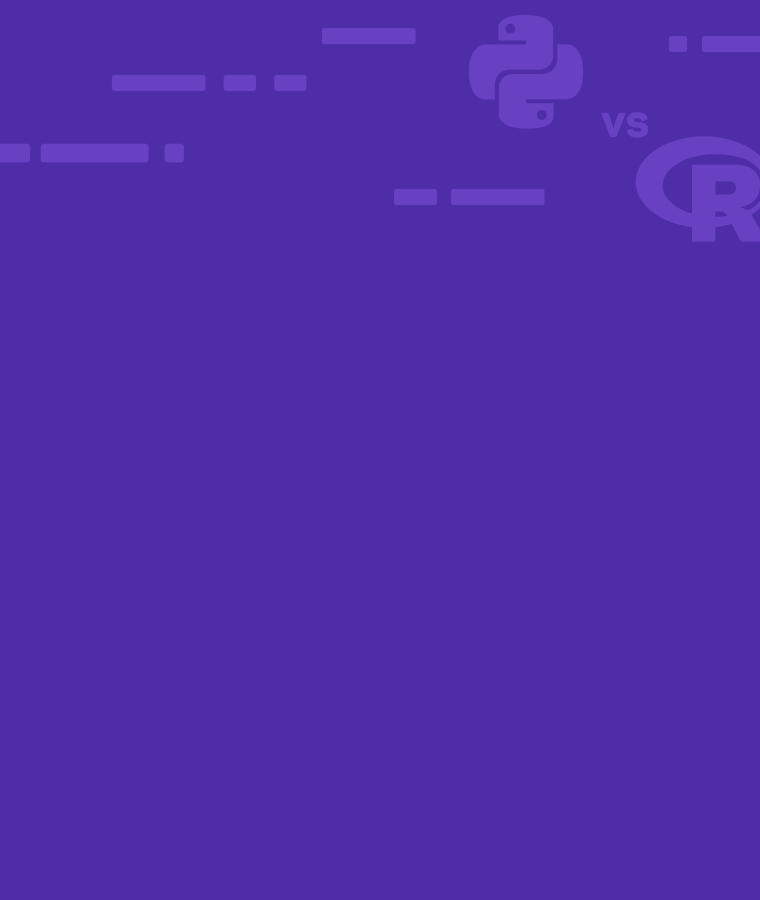
What Does a Software Engineer Do?
With the recent IT boom and rise in the number of apps, software engineering has become popular.
With the emergence of the Internet, it’s no wonder that it’s so in demand. Many new coding languages (for developing applications) have been created to solve different problems. For these coding languages, companies need a specialist to make things work. That’s why the number of aspiring software engineers is increasing more than ever.
But knowing their code is not enough, what do Software Engineers do? What even is a Software engineer? Can you become a Software engineer after only learning to code? Let’s jump in and explore all these questions!
Software Engineers – Who Are they?
Software engineers aren’t just coders. It’s a broad term that refers to hundreds of different qualities and unique skill sets.
A software engineer is involved in the whole life cycle of software development. From the initial phase to the delivery of the app, software engineers are there. Companies need them from requirement gathering to the maintenance of apps. (Requirement gathering refers to the initial activity in which clients tell their expectations)
Software engineers need to be able to:
- Code
- Design apps
- Use methodologies to develop apps.
They also need to wear different hats according to different roles.
As a lead, they need to manage the team, deliver outcomes, and be productive. Even entry-level software engineers may do client interactions, documentation (for software), and coding.
And in the middle of all of that, they’re honing their coding skills for more senior roles.
So, what is a software engineer? To sum it up, software engineers are developers, managers, and architects. They are specialists in their fields. And they constantly work to level up their skills further.
What do Software Engineers do?
Although software engineers have to be in all phases of development, what do they actually do?
Well, a software engineer uses math and logic to build applications. That includes websites, desktop apps, mobile apps, and much more. For example, Google is developed by a team of amazing engineers and other specialists. They create everything that you use connected to technology and the Internet.
But software engineer is just an umbrella term to define their job. There are many different aspects of software engineering. Their tasks and specialties depend on the type of software they build. Some software they’ve built include:
- Operating systems like Windows, macOS, etc.
- Computer games, whether simple browser-based games or more complex ones.
- Video games including VR functionality
- Websites
- Business applications
- AI applications
- Mobile apps
- Apps for data science and analytics
- Apps for IoT (internet of things). For example, apps for controlling an electronic device
Just to be clear, one software engineer can’t work in every area.
It is a broad categorization of areas that engineers can work in. Usually, an engineer follows a path to specialize in developing a specific app. This is because software engineering relies on knowing a variety of programming languages. Each language is tailored to produce dynamic and responsive apps for a unique use case.
What Does a Software Engineer’s Job Usually Involve?
A regular day in the life of a software engineer consists of a lot of coding. These experts spend most of their time working at a computer, solving tech problems. They have to supervise tasks, code and cooperate with colleagues to fix issues. Software engineers sometimes invest hours correcting old code and maintaining it.
Another responsibility is the development of modules for clients and businesses. These modules define the initial structure of the project. That’s why they may identify customer requirements and build modules as per their needs.
Software engineers don’t constantly operate alone as most people think.
Instead, they work with project directors, user UI or UX designers, data analysts, and others. What does their day-to-day life look like? Well…:
- Mostly software engineers gather requirements from clients. They refine these requirements along with business analysts before proceeding.
- A software engineer develops the foundation of the code. They decide the structure of the application. At the same time, they make sure they are keeping further maintenance in mind. They also collaborate with software architects to create initial system designs. System design means they’ve to decide on technologies or the approach they should follow.
- A senior software engineer usually reviews peer codes as well. That means that when a junior colleague writes code, they review the code and make sure there is no bug. Even if there is no bug, they also have to ensure coding standards. These coding standards may vary according to the organization. They usually involve clean code, that’s maintainable and follows best practices
- A software engineer is also responsible for testing code. They work with dedicated QA colleagues (who are mostly software engineers as well), to find bugs. And they perform beta testing routinely.
- Along with development, software engineers do maintenance as well. For example, if there is an old application or an already built application, they maintain it. Maintenance means they perform routine analysis and add modern features. They also remove previous bugs, if any. Sometimes, if an app is old, they may have to shift the entire code to another language too.
But… that’s not all. A software engineer also hires other software engineers. They need to interview people and hire them accordingly. They collaborate with higher management regarding clients and new hires.
What are some specific developer roles? Let’s look at a few popular software development positions and what you could expect working in them:
Backend Web Developer working for a small business or startup
- Collaborate with the front-end developers, managers, or other developers to resolve API issues. APIs are usually a way to transfer data between two ends.
- Develop and maintain secure web services. These services are used in apps to process transactions and much more.
- Build reusable code and libraries for future use or updates.
- Check and resolve bugs that are critical to the application’s user experience. Also, resolve customer problems and complaints.
Software Engineer at a financial technology company
- Design, create, test, and maintain logic and components
- Create methods for automated analysis and monitoring
- Improve the structure and stability of the codebase as new needs and issues arise
- Collaborate with the business side of the company to develop new tools. Also, enhance operations for improving the user experience.
Data Engineer
- Assist in building robust data pipelines
- Identify, predict, and help remove data bottlenecks. That results in improvement of speed and analysis performance
- Retrieve and aggregate data from multiple sources into a clear and readable format. So that, the company can use it for further analysis or planning
- Automate manual processes and find methods for improving data delivery. Also, if it needs scaling, redesign the whole infrastructure.
These are just examples of the career paths available to software engineers. Other popular and in-demand jobs for software developers and engineers include:
- Web developer
- Mobile Developer
- Quality Assurance (QA) engineer
- Systems Engineer
- Machine learning engineer
- Database administrator
What Skills or Mental Abilities Does a Good Software Engineer Have?
Like technical skills, soft skills also play a key role in making anyone successful. And the same goes for software engineering. Software engineers must possess great interpersonal skills to be successful. They are regularly interacting with clients and peers.
That’s why they have to be great at both coding and talking. Let’s review a few skills you need to develop to be a great professional:
- Communication Skills: Software engineers do not operate in a bubble. They must be great at communicating. They should convey their concerns, stand up for what’s right, and listen to requirements. Observing how a senior engineer interacts with clients is a good way to develop these skills.
- Professionalism: Coding is often romanticized as something opposite of a traditional business setting. But the reality is much less exciting. Many of your clients will be corporations or brick-and-mortar businesses. Professionalism is key to proving to your client that you respect their business. So that they can realize that you’re worth their time and money.
- Willingness to learn: This is an extremely important skill for software engineers. Software engineers have to learn constantly, and they must be willing to learn. They must be attentive to details and have the hunger to learn.
- Open-mindedness: A software engineer must take constructive criticism easily. It doesn’t mean that they shouldn’t mention when they’re right. Instead, they must have what it takes to reflect on their own work and learn new ways. Since technology is a constantly developing field, they should be able to adapt too.
- Flexibility: Things will go wrong, and clients will change their minds. Your team members may join or leave while developing a single application. Being able to roll with the changes is essential for software developers. Not only for performing your job well but also for preserving your sanity.
What Do I Need to Learn to Be a Software Engineer?
You can develop soft skills over time, especially when working with seniors and other colleagues.
But what’s the fastest way for you to become a software engineer? For starters, you can try out some free, bite-sized courses by SoloLearn and see if coding is something you might want to do. You can also enroll in computer science, data science, or software engineering programs. Even after you enroll in a program, online courses are helpful for brushing up on your skills and sticking to a regular practice schedule. They can help you add some practical skills to your portfolio and make you stand out from the crowd.
Online courses and programs might have:
- Tutorials on the basics and structure of the programming language you’re studying.
- Challenges and problems to solve and test your experience. You’ll also gain practical experience in development, designing, and testing.
- Quizzes to further test your skills and enhance your knowledge.
- Community support from peer developers and fellows. Some may solve the problem you’re stuck on!
Most importantly, after learning the key skills and basics, apply them in the real world.
You can make your portfolio strong by building apps and contributing to code. Before you know it, you’ll land your first job as a developer!


